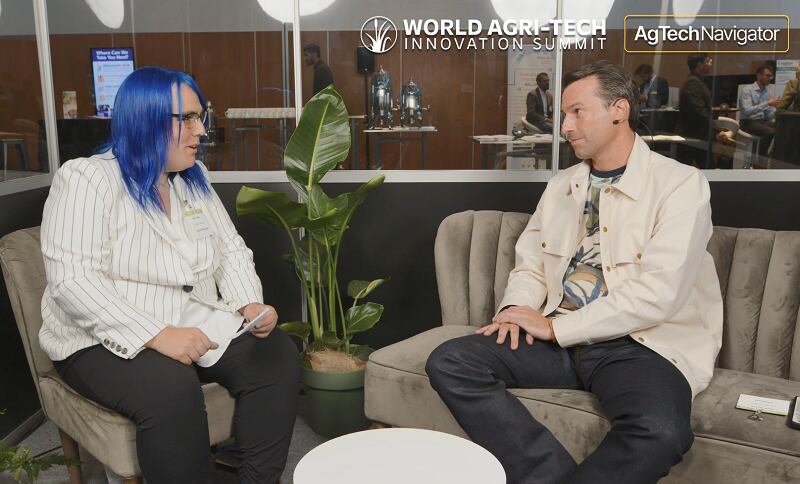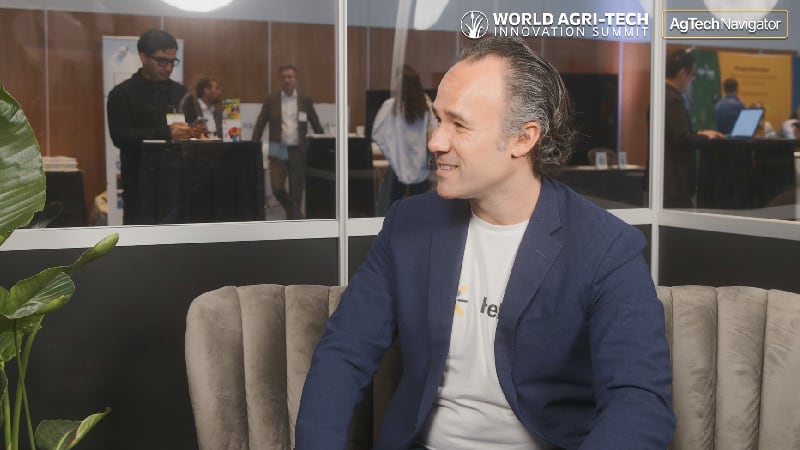Farmers and ranchers are closely monitoring their margins and coming up with creative solutions to reduce costs, like Oxcel’s nanobubble technology that improve nutrient uptake in livestock.
Founded in 2022, Oxcel offers a proprietary hardware, available through an as-a-service model, that infuses nanobubbles into the livestock’s water supply, Alex Leigh, founder of Oxcel, told AgTechNavigator at the World Agri-Tech Innovation Summit in London last week.
Oxcel conducted a metronomic study on the gut biome of livestock consuming nanobubbles and found several key benefits, Leigh noted. The agtech company found in field trials, conducted with the help of Scotland’s Rural College, that poultry producers reported fewer mortalities and increased the birds’ weight. Additionally, pig farmers in Northern England improved feed efficiency and animal growth rates with nanobubbles.
“Animals are able to consume less feed to get to market weight, be healthier, meaning less use of antibiotics, and all of this means that it is more sustainable, meaning there is less carbon footprint per kilo of beef produced. So, our farmers love that our technology is easy to adopt, and they love the financial impact on a low-margin industry where they are able to make more profit by reducing their largest cost, which is feed,” Leigh elaborated.
He added, “When you speak to farmers in the monogastric industry, they are so focused on gut health because they know it is a real driver to the animal’s performance. ... In the trial, we had a more diverse gut bio with expression of co-factor bacteria that were known to help with improving the immune system, hence the survivability, and improving the nutrient uptake, hence the meat quality and the reduction of feed.”
Combating feed inflation with tech
While grain prices remain low, farmers and consumers alike are carefully watching for signs of inflation and price increases, and a single poor harvest can have a massive impact to the animal system, Leigh noted.
Feed “has always been the largest cost input into the farm. ... So, the need for solutions that may improve the efficiency in this largest cost [is] key not only for the bottom line but also the survivability of these farms,” he said.
The agtech start-up is now raising a seed round to help propel it onto the global stage, Leigh explained. Recently, Oxcel connected with Canadian innovation incubator Cultivator Powered by Conexus to explore how the technology can help farmers in that country, Leigh said.
“In some of the North American intensive farms, there is more exposure to pressures on the animals. So, we can make an even larger impact in the North American market. So right now, we are seeking our first seed round, where we are looking to raise half a million pounds to help the business scale its trials in the UK but also start to take that data and have conversations with big producers around the world to choose our next target market,” he elaborated.



